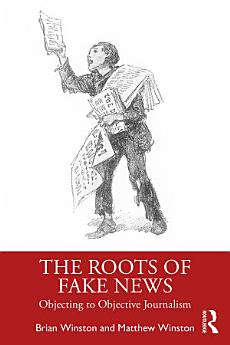The Roots of Fake News: Objecting to Objective Journalism
About this ebook
Placing the concept of media objectivity in a fuller historical context, this book examines how current perceptions of a crisis in journalism actually fit within a long history of the ways news media have avoided, obscured, or simply ignored the difficulties involved in promising objectivity, let alone ‘truth’. The book examines journalism’s relationships with other spheres of human endeavour (science, law, philosophy) concerned with the pursuit of objective truth, to argue that the rising tide of ‘fake news’ is not an attack on the traditional ideologies which have supported journalism. Rather, it is an inevitable result of their inherent flaws and vulnerabilities.
This is a valuable resource for students and scholars of journalism and history alike who are interested in understanding the historical roots, and philosophical context of a fiercely contemporary issue.
About the author
Brian Winston is the Lincoln Professor at the University of Lincoln (UK). He is the author of A Right to Offend, The Rushdie Fatwa and After and also writes on documentary film and media technology. He was the founding director of the Glasgow University Media Group.
Matthew Winston is the author of Gonzo Text: Disentangling Meaning in Hunter S. Thompson’s Journalism . He teaches in the School of Media, Communication and Sociology at the University of Leicester.







